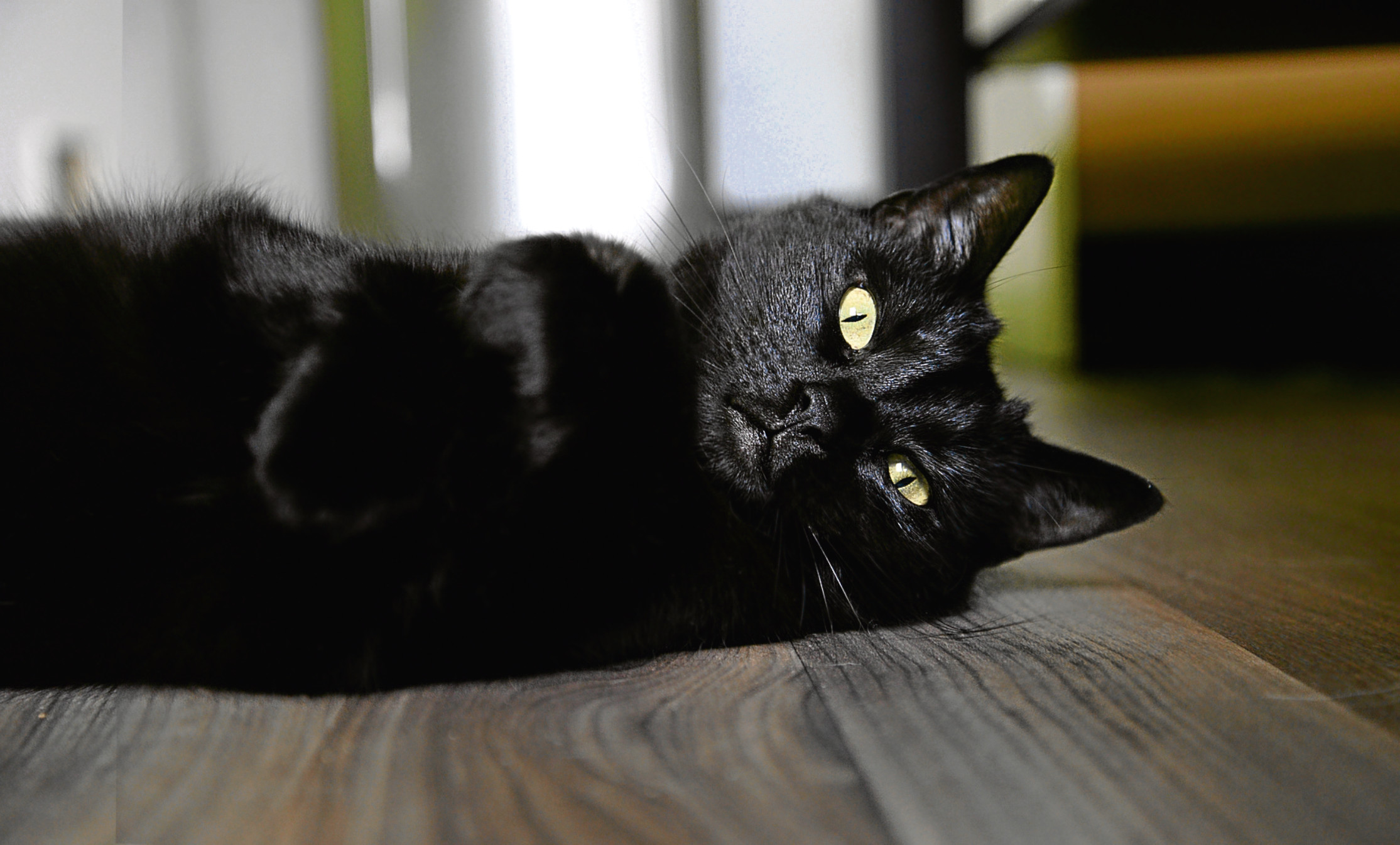
WE Britons pride ourselves on being a nation of cat lovers — but it seems some colours of cat make us purr more than others.
According to some RSPCA bosses, even folk who are desperate to find themselves a new feline friend change their minds when they realise the only ones on offer are black!
It is all, apparently, down to superstition and myths about black cats.
An RSPCA branch at Suffolk, for example, is said to have a whole host of black cats keen to find a new owner to look after them and love them.
But many people are just too spooked by black cats to take one home.
The RSPCA have had to assume the reason behind their reluctance is fear and superstition, as cats of any other colour are picked up double quick.
Historically, of course, many people around the globe have viewed black cats with mistrust, seeing them as symbols of evil and bad luck, rather than furry balls of love just waiting to be adored.
They have even, at times, been strongly linked with witchcraft, and it is clearly a reputation that black cats still struggle to shake off, even in this day and age.
In America, early pilgrims viewed black cats as demons, to the extent that anyone found owning one or looking after one could be severely punished.
In the Middle Ages, it was quite common to see people routinely kill black cats — in fact, the more you learn of how we’ve treated them, the more you wonder why they aren’t terrified of us, rather than the other way about!
Some cultures, however, have traditionally viewed the black cat in a much more positive way, and even in parts of the UK, they are seen as symbols of good luck, rather than bad.
Sadly, Suffolk doesn’t seem to be one of them!
Ancient Egyptian goddesses were often symbolised as black cats, and they were seen as beautiful, wise and powerful.
If a black cat appears at your doorstep in parts of Scotland, you are in for good luck, not bad, while in Northern Europe in centuries gone by, fishermen’s wives sought black cats to ensure their husbands would return safely from their sea travel.
Japanese women often buy themselves a black cat, partly because they reckon it will bring them a whole host of gents who will fall in love with them.
Sadly, for Sunderland boss David Moyes, being in charge of a football team known as the Black Cats isn’t bringing him — or them — much good fortune at the minute.
They have had a bad start under the Scotsman’s leadership, and you couldn’t blame Sunderland fans for being wary of black felines.
Kong, Ferdie, Daisy and Peaches are some of the names that have been given to those seemingly-unwanted black cats and kittens in Suffolk, and by all accounts all they want to do, apart from find a home, is to play with balls of wool and have a lovely, lazy time.
They don’t seem to be even slightly interested in anything dark, malicious or evil, and it’s just a pity so many people are scared that they might be!
READ MORE
Lap of luxury: We all just love to splash the cash on our cats and dogs
Do cats like music? Composer creates melodies for our feline friends

Enjoy the convenience of having The Sunday Post delivered as a digital ePaper straight to your smartphone, tablet or computer.
Subscribe for only £5.49 a month and enjoy all the benefits of the printed paper as a digital replica.
Subscribe